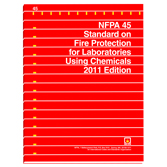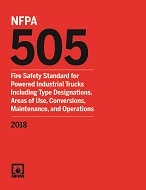Click here to purchase
NFPA 52: Vehicular Natural Gas Fuel Systems Code provides easy, one-stop access to requirements for the safety and integrity of CNG and LNG fuel systems.
Because of the cost advantage of natural gas over petroleum-based liquid fuels, increasing numbers of natural gas-fueled vehicles are being put into service. As a result, NFPA 52 is more widely referenced than ever before by designers, engineers, installers, contractors, maintenance professionals, facilities managers, and Authorities Having Jurisdiction (AHJs).
Renamed and completely reorganized, the 2016 edition presents a user-friendly format and greater consistency with CSA Group NGV 5.1 and the International Fuel Gas Code.
Users depend on NFPA 52 for the correct design, installation, operation, and maintenance of Compressed Natural Gas (CNG) and Liquefied Natural Gas (LNG) engine fuel systems and dispensing systems. The 2016 edition is reorganized for easy access to requirements. New and revised definitions harmonize the Code with the new CSA Group NGV 5.1 Standard for residential fueling appliances, and also provide consistency with the International Fuel Gas Code (IFGC).
NFPA 52 is your one-stop source for requirements addressing:
- CNG and LNG systems on all vehicle types
- Fuel compression, processing, storage, and dispensing systems
- CNG residential fueling facilities (RFF-CNGs)
- LNG fueling facilities
- LNG fire protection
- Installation of ASME tanks for LNG
- LNG and CNG on Commercial Marine Vessels and Pleasure Craft
NFPA 52 applies to facilities with LNG storage in containers of 70,000 gallons or less.
Product Details
- Published:
- 04/26/2016
- ISBN(s):
- 9781455912988
- ANSI:
- ANSI Approved
- Number of Pages:
- 79


